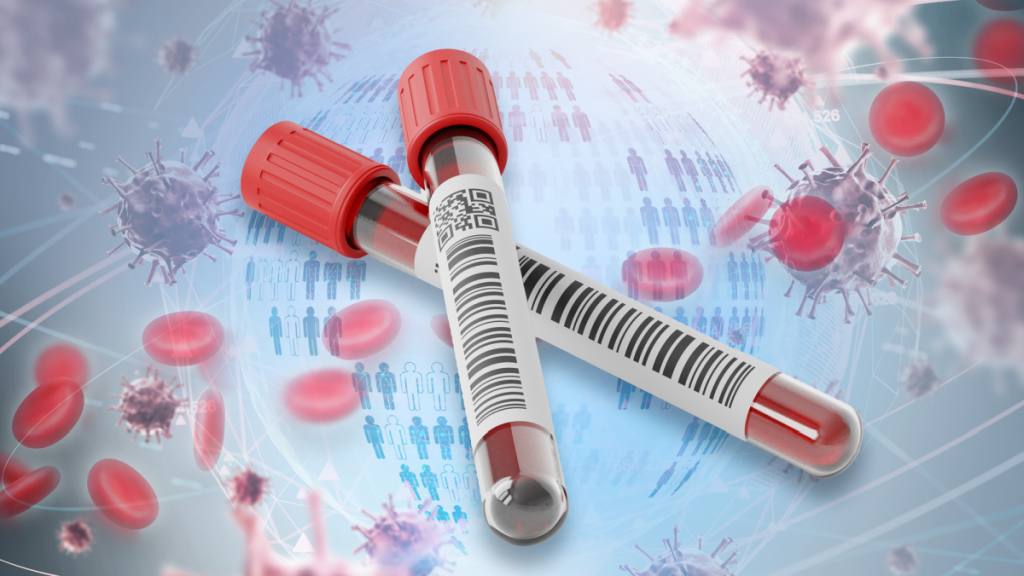Chronic conditions, such as diabetes, cardiovascular diseases, and autoimmune disorders, require vigilant management to ensure a high quality of life and prevent complications. One essential tool in this management strategy is comprehensive blood testing. This blog post explores how blood tests play a crucial role in diagnosing, monitoring, and managing chronic conditions, and how they can empower patients and healthcare providers to make informed decisions.
Understanding Comprehensive Blood Testing
Comprehensive blood testing involves analyzing a broad spectrum of biomarkers in the blood to assess an individual’s health status. Unlike routine blood tests, which may focus on specific parameters, comprehensive tests provide a holistic view of an individual’s health. These tests can include a variety of measurements such as:
- Complete Blood Count (CBC): Measures red blood cells, white blood cells, and platelets. It helps in diagnosing conditions like anemia and infections.
- Basic Metabolic Panel (BMP): Assesses electrolytes, blood sugar levels, and kidney function.
- Comprehensive Metabolic Panel (CMP): Includes all BMP tests plus additional measurements of protein levels, liver enzymes, and other markers.
- Lipid Panel: Evaluates cholesterol levels, which is crucial for assessing cardiovascular health.
- Thyroid Function Tests: Measures levels of thyroid hormones to evaluate thyroid health.
Diagnosing Chronic Conditions
Accurate diagnosis is the first step in managing any chronic condition. Comprehensive blood testing provides detailed information that helps healthcare providers identify underlying issues that may not be evident through symptoms alone.
For instance, in the case of diabetes, a comprehensive blood test can measure fasting blood glucose levels, hemoglobin A1c, and other indicators to diagnose the condition accurately. Similarly, patients with autoimmune disorders may require specific blood tests to detect markers like antinuclear antibodies (ANA) that can indicate the presence of these conditions.
Early and accurate diagnosis allows for timely intervention and management, which can significantly improve the prognosis and quality of life for individuals with chronic conditions.

Monitoring Disease Progression
Once a chronic condition is diagnosed, regular blood testing becomes an integral part of monitoring disease progression. This ongoing assessment helps in evaluating how well the current treatment plan is working and if any adjustments are needed.
For example, patients with chronic kidney disease may undergo periodic blood tests to monitor kidney function markers such as creatinine and blood urea nitrogen (BUN). Changes in these markers can indicate whether the disease is progressing or if the current management strategies are effective.
Similarly, for individuals with cardiovascular conditions, regular lipid panels help track cholesterol levels and assess the effectiveness of dietary and medicinal interventions. Consistent monitoring through blood tests ensures that any adverse changes can be addressed promptly, helping to prevent serious complications.
Guiding Treatment Decisions
Comprehensive blood testing provides valuable insights that guide treatment decisions. By analyzing various biomarkers, healthcare providers can tailor treatments to each patient’s unique needs, improving the likelihood of successful outcomes.
For instance, in the management of rheumatoid arthritis, blood tests can help in adjusting medication dosages based on inflammation markers like C-reactive protein (CRP) and erythrocyte sedimentation rate (ESR). These tests help in fine-tuning treatment plans to achieve optimal results and minimize side effects.
In diabetes management, regular blood glucose monitoring allows for adjustments in insulin dosage or other medications. By tracking changes in blood glucose levels, healthcare providers can make informed decisions about modifying treatment plans to maintain optimal control of the condition.
Empowering Patients
Comprehensive blood testing not only aids healthcare providers but also empowers patients to take an active role in managing their chronic conditions. Understanding the results of blood tests can help patients make informed decisions about their lifestyle and treatment choices.
For instance, patients with high cholesterol levels can use information from lipid panels to make dietary changes or adhere to prescribed medications. Similarly, those with thyroid disorders can monitor hormone levels to ensure that their treatment is effectively managing the condition.
By providing patients with clear, actionable information, comprehensive blood testing fosters a collaborative approach to managing chronic conditions. It encourages patients to engage with their healthcare providers and make proactive decisions about their health.
Integrating Blood Tests into a Holistic Approach
While comprehensive blood testing is a powerful tool, it is most effective when integrated into a holistic approach to managing chronic conditions. This approach includes regular consultations with healthcare providers, lifestyle modifications, and adherence to prescribed treatments.
Blood tests should be viewed as one component of a broader strategy that includes a balanced diet, regular exercise, and stress management. For example, individuals with diabetes should not only rely on blood glucose testing but also incorporate healthy eating habits and physical activity into their daily routine.
Additionally, patients should work closely with their healthcare providers to interpret blood test results and understand their implications. This collaborative approach ensures that all aspects of the condition are addressed comprehensively.
Conclusion
Comprehensive blood testing is a cornerstone in the management of chronic conditions, offering critical insights for diagnosis, monitoring, and treatment. By providing a detailed view of an individual’s health status, blood tests empower both patients and healthcare providers to make informed decisions and tailor treatment plans effectively.
As healthcare continues to evolve, the role of comprehensive blood testing will remain vital in managing chronic conditions and improving patient outcomes. Embracing this tool and integrating it into a holistic management strategy can lead to better health and enhanced quality of life for individuals living with chronic conditions.

Leave a Reply